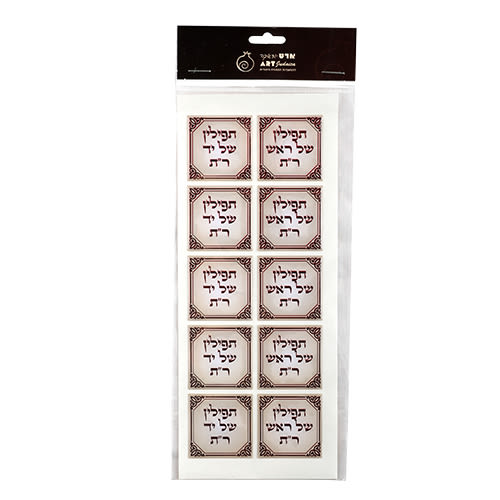
Dust in the Wind
Amazingly, it just hit me now, years later, when I happened to hear a radio station play that melodious acoustic number—why! Dust in the Wind...

Amazingly, it just hit me now, years later, when I happened to hear a radio station play that melodious acoustic number—why! Dust in the Wind is a verse in the Torah, a verse that describes the essence of man!
My Favorite Band
Everyone in my college dorm had a favorite band, except me. Mike, in the room next to mine, was a true YES freak, an engineering major who possessed an incredible quadraphonic sound and light system (this was the 70’s). Down the hall stayed Peter, who painted his military boots bright gold, sprinkled them with glitter and blasted David Bowie’s Fame all night long, intermixed with the Rolling Stones. Brian aspired to be suave with the Moody Blues, while his internationally schooled roommate, Marc, listened to esoteric King Crimson and pre-Dark Side of the Moon Pink Floyd, and extolled the praises of Genesis. Even my roommate, Keith, who excelled on the track but couldn’t keep up his grades, succumbed to the British invasion with a passionate taste for Emerson, Lake, and Palmer.
While I had picked up a taste for Pink Floyd and Jethro Tull from my high school buddies, I still did not have “my favorite band.” I clearly favored progressive rock, like my roomies, but I didn’t always connect with the sometimes overly pretentious lyrics and the unsettling lack of a clear melody line of the UK 70’s progressive rock.
On winter break I was flipping through some albums in a record store in the Esplanade Mall and the striking image of John Brown declaring a holy war on slavery caught my eye. He looked like some kind of fiery prophet straight out of the Bible. Intrigued, I read the back of the album: “We are Kansas. Kansas is a band.” That sounded good enough for me, so I bought it and took it home. Their combination of classically influenced progressive rock with American rock and roll basics really hit the mark for me. I became a guru, playing it for anyone who came within reach. As more albums came out I became more and more enthusiastic.
I was ecstatic when they produced a smash hit album, Leftoverture, with the classic rock anthem Carry On My Wayward Son. I felt it was addressing me personally. I brought all my friends to their concerts in LA, even hanging around backstage after the concert to share a few words with my heroes. In 1977 they came out with Point of Know Return that featured Kansas’ biggest hit, Dust in the Wind.
Dust
As a Psychobiology major, the lyrics of this song hauntingly echoed the sentiments of my materialistic view of the world.
I close my eyes
Only for a moment, then the moment’s gone
All my dreams
Pass before my eyes, a curiosity
Dust in the wind
All they are is dust in the wind… Same old song
Just a drop of water in an endless sea
All we do
Crumbles to the ground, though we refuse to see
Dust in the wind
All we are is dust in the wind, ohh now, don’t hang on
Nothing lasts forever but the earth and sky
It slips away
And all your money won’t another minute buy
Dust in the wind
All we are is dust in the wind…
One of the first courses in my Psychobiology major featured the Mind/Body dilemma. It is truly perplexing, where does human consciousness come from? Can an amalgamation of synapses between neurons account for the process of creative thought? Right at the start, the professor mentioned Descartes’ theory that the soul was contained in the pituitary gland under the brain’s hypothalamus. What he thought about that theory could be best summarized by the prize earned that semester for the best lab work in his course—a jar of pituitary glands pickled in formaldehyde.
The soul—a joke. To paraphrase Dr. Patricia Churchland, of the University of California at San Diego, quoted in a special edition of Scientific American devoted to the Mind/Body problem: “Let’s just face the facts. All we are is a lump of flesh and when we die, we rot in the grave.”
All we are is dust in the wind…
In 1978 I graduated and left on a trip to Europe and Israel. After discovering the beauty and intensity of Torah study, I bode farewell to my vinyl records and concentrated on “learning how to learn.”
Amazingly, it just hit me now, years later, when I happened to hear a radio station play that melodious acoustic number—why! Dust in the Wind is a verse in the Torah, a verse that describes the essence of man!
Wind
“And Hashem God formed the man of dust from the ground, and He blew into his nostrils the breath of life; and man became a living being” (Bereishit 2:7). The Targum Onkelos, an Aramaic translation of the Torah, renders “a living being” as “ruach memallah,” a speaking spirit, or literally, wind.
The Kabbalists use the analogy of a glass blower to describe the formation of the levels of a human being’s soul. As a child, I would watch with fascination as the artist attached a lump of hot molten sand to his tube and blew an exquisite glass sculpture.
In the words of the Zohar, “one who blows, blows from within himself,” indicating that man’s neshamah, Divine soul, which God breathed into his nostrils, is part of God’s essence, as it were. In glassblowing, the breath passes from the glassblower into tube connected to the molten sand and expands its walls. This movement is equated with the ruach, wind, as the soul descends into the lower worlds of creation. The glass vessel is formed when the air comes to rest—nefash—which alludes to the nefesh, the animal soul that contacts the physical “dust” and brings life to the cells of our body.
One of the most pondered issues is: What are we—a body or a soul? The Torah tells us that God took the molecules of physical existence, “the dust from the ground,” and blew into them from His essence—the neshamah. But the Torah does not stop with this alone, it adds that man thereby developed into a unique composite: the speaking spirit.
Speech is also unique. It is the physical expression of the distinctly spiritual function of creating an idea in one’s mind. Carried in the air, using vocal cords and sound waves, our voice represents the life that is unique only to man. Only God could blow into us the rational soul that provides us with the power of intelligent speech. Only one creature in all of creation combines the earthly and heavenly matter, our body from the dust and our soul from the spirit.
According to Kabbalistic thought, our center of self-awareness and the core of our decision making process is in the level of the soul called the ruach, wind. The goal of a human being in physical existence is to elevate his choices from the desires of the body, generated by the nefesh, to the desires of the neshamah.
In common speech, we say: “I have a body… I have a soul.” We feel that we are somewhere in between.
As a ruach, we stand in the interface between the body’s attraction to physical, temporary pleasures and the neshamah’s attraction to meaning and eternity. Just as the wind is formed by the buffeting of low-pressure zones and high-pressure zones, so too, our personality is directed and formed by the choices we make between the soul’s pleasures or the body’s pleasure.
This interface is the crux of free will.
A thirty-year-old song has no doubt seen a myriad of interpretations. My musings reflect the metamorphosis of my worldview from a purely materialistic one to one that features predominantly the spiritual. I have unending gratitude that I have moved beyond thinking of myself as Dust in the Wind to Dust in the Wind.










Tell us what you think!
Thank you for your comment!
It will be published after approval by the Editor.